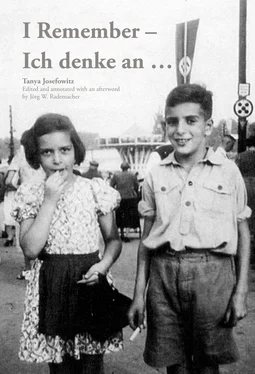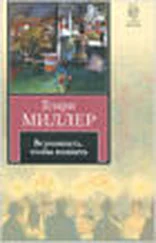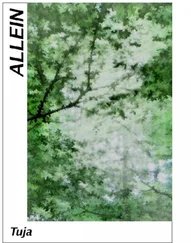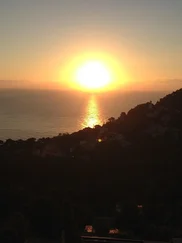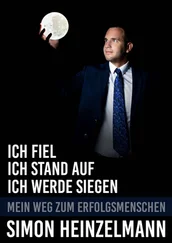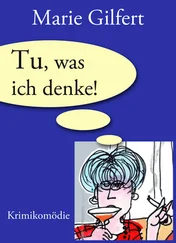By 6.00 a.m. we were up sharing half of the single breakfast allotted to us. With the other half mother made “ Butterbrot ” 11sandwiches, as we didn’t know when we would eat again. At 7.00 a.m. we were in the Nazi Customs Office. Our friend and guardian angel, traitor to his cause, was there to greet us. We so much wanted to show him our gratitude. Yet we were too afraid of his uniform and all that it stood for to really trust him and to show our feelings.
He took us to the bleak “ Bahnhof Buffet” a nd treated us to hot chocolate. Then he told me and Vladimir to watch our luggage and sit tight while he and Mother were going to get the necessary permission for us to leave Germany. They promised to be back in no time. But again I burst into tears and started screaming. People were looking at us, and again Vladimir began to play his accordion to cheer me; but I continued to cry, sure that we would never see our mother again.
Later, Mother told us how they ran to catch the tram and how our new friend virtually pushed her into it. When they got off, he said to her: “Now, please, keep your mouth shut! I’ll do the talking.”
They went to an official building with a big Nazi flag blowing in the wind. Many people were queuing up outside, but he pushed Mother past all of them and ran with her upstairs. They entered an office where a stern-looking bureaucratic official was sitting behind a big desk. Once more our man pushed Mummy forward and said: “I have here a fine Jewish lady who needs help in a hurry. Her children are alone at the station.” He then shoved onto his desk a paper that he had already filled out, and said that he just needed an “authorized” stamp from him that would be the passport for our departure to France. With great reluctance the Nazi stamped the paper, and off they fled, down the stairs, past the long queues, onto the tram and back to the station. “I wish I too could leave with my family,” he had told Mother whispering. But Hildi was still terrified and afraid to trust this man – even to cast him a smile. She was too traumatized, and almost to the last moment she suspected that this kind man might be fooling her.
Without delay our guardian angel rushed us onto the platform to catch the 9 o’clock train to France. He helped us to collect our belongings and pushed us onto the train. As Mother was about to board it, the dreaded officer of the day before appeared. Stern, and with angry eyes, he shouted: “This woman must be examined.” “Our” Gestapo officer then explained to Hildi that she must hurry to the little tent-like house on the platform, where a woman would examine her. Vladimir and I had to remain on the train. We watched Mummy run off and again I started to scream. She, too, turned back to us with saddened, frightened eyes while she was running.
Ushered into the tent-like hut, Mother was met by a tall, tough-looking, angry woman dressed in white like a nurse. She made her undress and examined every hole and crevice of her body. But outside, our good friend was waiting for her and rushed her off, yelling: “Hurry, hurry! Don’t dress, but just come as you are!” She barely man-aged to cover herself with the coat, then she rushed off to her children on the train, holding on to her clothes and shoes, while the long laces of her corset were sweeping the floor. Breathless and flushed, she grabbed the railing as “he” pushed her onto the slowly moving train. He stood there waving to us until we were out of sight and we too waved back, finally convinced that he really was our Friend and Saviour. We did not even know his name, and would probably never see him again. This was good-bye for ever! Next to him stood the other Nazi officer, observing the scene with cold eyes and an angry face. The train was almost empty. We sat in silence, each with his own thoughts, and I remember saying a hushed prayer for this man who, I was convinced, had saved our lives. We watched the bleak countryside slide past our window, and before we knew it, the conductor announced our arrival in Metz – our next home for a while.
Of course, no one was there to meet us at the station. Our friends had given up all hope of ever seeing us again. When we had not arrived at the announced date, they were sure we had been deported. What a relief and joy, when we three bedraggled and tired people walked into their simple but kind and welcoming home. We only stayed a few weeks, but to me the days and nights were like one, and they seemed endless. I had taken ill with a very bad and constant belly ache, and the doctor foresaw the worst. He thought that I needed an appendectomy.
In the meantime my father, by then in New York, had been able to get us immigration visas for the United States, with the help of Aunt Mary, Uncle Max 12and their children. It was a great dilemma for my mother: should she travel with a very [ sick ] child 13, or miss the next boat, on which they had managed with great difficulty to obtain a cabin for the three of us. It was to leave from Le Havre in a few days.
Mother made the right decision and we were going to sail, in spite of my terrible belly pain. We left our friends in Metz with warm goodbyes and thanks. When the war was over, we found out that they had been deported and killed by the Nazis. 14
On our way to Le Havrewe spent 24 hours in Paris. Arriving at the grandiose Gare du Nord , we checked into a hotel for the night.
Our room was on the fifth floor. I had never been in such a high building, and looking down from the window, people, cars and buses, seemed like toys. We again shared a single room with breakfast and we slept well that night.
In the morning Mother went to the Gallery Lafayette, the most famous French Department Store, to buy us each a present, a souvenir of Paris. Vladimir and I had to stay in the hotel, while she went off, and I again was in a panic, following my Mummy through the window and seeing her disappear in that very, very busy street, crowded with people. Her absence seemed endless. But we were rewarded on her return. I received a lovely plaid beret and scarf which I cherished for many years, Vladimir too got a beret, and Mother, all thrilled, had bought herself some nail varnish, an unheard-of, vulgar luxury by all standards of our life style.
We left Paris in the afternoon and took the train to Le Havre, where we were to board the boat that was to take us to the USA. Mother had had a cold for days. But now, on the train, it suddenly became much worse. It was as if all this time she had pulled herself together to be strong and in control, and now as we were on our last lap to liberty, her body finally gave in.
On arrival at Le Havre, there was a huge crowd. Babies, little children, old and young people, all queuing up with their luggage. It was dusk, and it all seemed so chaotic. As we were standing in line to get to the gangplank, Mother so unwell and I helpless and miserable with a continuous bellyache, a miracle occurred. There, out of the clear sky, a smiling woman pushed her way through to us and fell around my mother’s neck. It was an old school friend of hers, now a medical doctor and married to a doctor as well.
This was to be our second guardian angel. Realizing immediately how ill my Mother was, she warned her, whispering into her ear, to hide her condition in front of the officials as we were boarding the ship. Sick passengers were not allowed on board and could be forced to get off if noticed before departure. To hide her high fever and her red, sniffling nose, Mother now feigned sobs and bitter tears of departure, covering her face with a hanky. It worked, and they let us on the boat. What a relief!
Our cabin was small but cozy, and that of our friends was nearby. So they often looked in on us. Again they warned my Mother to cover up her illness by feigning sea-sickness. Patients and invalids were not admitted in the US by the immigration authorities. They were put on an island, Ellis Island, where they detained sick refugees, criminals and other undesirables. A new fear to cope with! Yet, instinctively, I felt the worst danger was over. At least we were on the way to America, the land of the free.
Читать дальше
